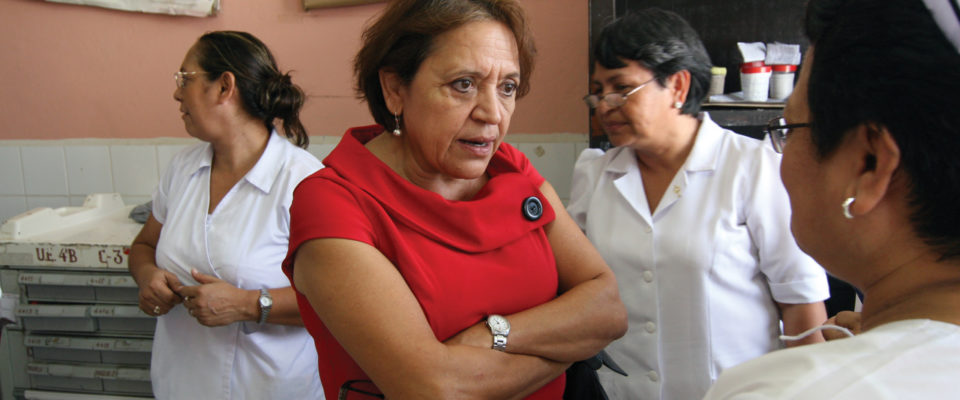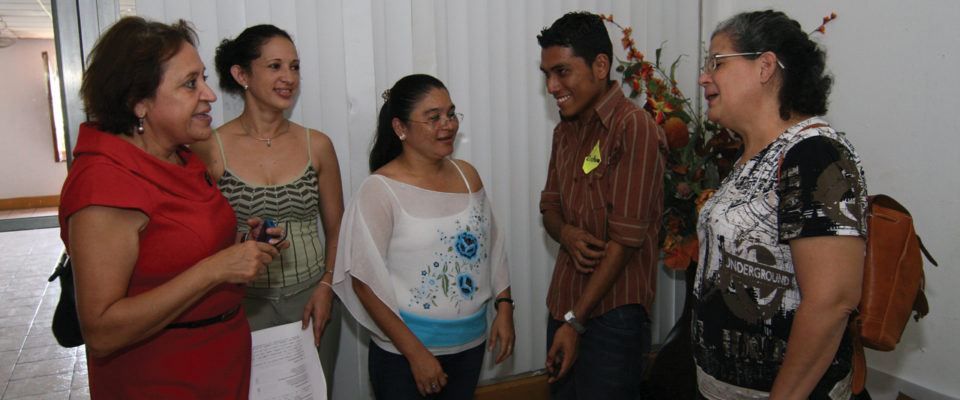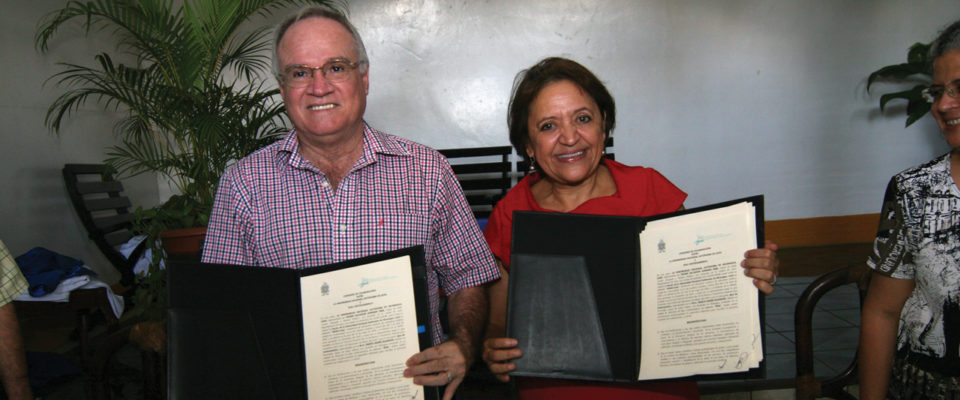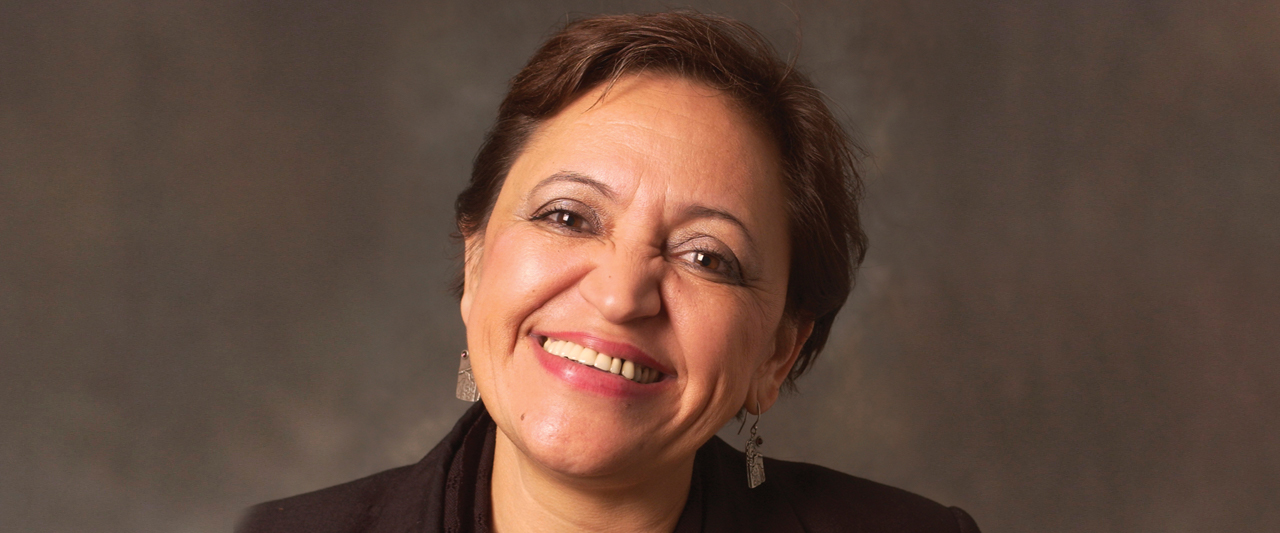Marta María Blandón’s advice to young activists: Invest in partnerships, never lose sight of adversaries
After decades of tireless work across Central America, Marta María Blandón is widely recognized as a highly effective and passionate champion for women’s sexual and reproductive rights in the region.
“Marta María is never afraid to speak up and speak out when she sees injustice, no matter who is committing the injustice,” says Ipas President and CEO Anu Kumar. “She never gives up, even in the face of obstacles that would intimidate others. She is always planning the next move and continues fighting for what she believes in.”
At the end of 2018, Blandón retired from her role as director of Ipas Central America. Under her leadership since 1991, the program earned the respect of diverse partners throughout the region for innovative bridge-building that has expanded the movement for women’s sexual and reproductive rights.
Although Central America is home to some of the most restrictive abortion laws in the world—Nicaragua, El Salvador and Honduras ban abortion completely—advocates for safe, legal abortion across the region have built broad, vocal coalitions that relentlessly push for repeal of these bans as well as for measures to expand access to contraception, to prevent sexual violence and to fulfill women’s and girls’ right to make their own reproductive choices. With Blandón leading the charge, Ipas Central America has been a key player in these varied advocacy efforts.
While she’s heading toward new adventures in 2019, Blandón says she’ll definitely continue her activism. “I’m retiring from work with Ipas, but not from my commitment to women’s rights,” she says. Here she reflects on her proudest moments during her almost three decades of service with Ipas—and also looks to the future, offering words of encouragement to the next generation of activists.

©Benjamin Porter
What accomplishments are you most proud of during your long career with Ipas?
Blandón: I think that my work has contributed to saving lives, without me being a doctor. [Blandón is a licensed psychologist and began her career counseling women who faced poverty, violence and other challenging circumstances.] I’m sure that our work to include sexual and reproductive health and rights content in the training of health workers has improved the quality of care women receive and the compassion health providers have for women with unintended pregnancies and those who have sought unsafe abortions and have complications.
Today, Ipas is recognized in Central America as a pioneering organization in the protection of a woman’s right to choose—and we accomplished this through strong partnerships with universities, ministries of health, women’s and youth organizations and physician’s groups.
What motivated you to do this difficult work for so many years?
Since the beginning of my professional career, before Ipas, I knew that I wanted to dedicate my life to improving the lives of women. It was very gratifying for me to start innovative work in the early 1980s with self-help groups for low-income women in order to share best practices for navigating government systems to demand justice when faced with difficult family situations, violent ex-partners, and for building a safe environment for themselves and their children. This experience is the foundation of my commitment to working for gender equality.
What do you think of the status of sexual and reproductive health and rights in Central America today?
I believe we still have a lot of work to do. We haven’t advanced like we should have, and we have countries that are not committed to sexual and reproductive rights. They sign agreements and conventions, but sexual and reproductive rights aren’t a priority in their policymaking or budgets. And of course, this has had consequences, such as enormous backslides in the legislative environment, criminalization of abortion in three countries in the region, criminalization of emergency contraception in one country, shamefully high rates of forced pregnancy in girls and adolescents, lack of sexuality education in schools, and the routine violation of women’s fundamental human rights—like the right to life, to health and to live free of violence. Much of the work of protecting and promoting sexual and reproductive rights has fallen back onto civil society—particularly the women’s and feminist organizations. More investment from the donor community is necessary, and from regional and international organizations that work on this important topic.
As a veteran activist in the region, do you have any words of wisdom for the next generation of feminist activists?
We should not lose sight of who our adversaries are in the fight to advance human rights. We have to invest real effort in improving the quantity and quality of our partnerships, understanding and respecting the role and the importance of each actor or organization. It’s both a challenge and a responsibility to work to ensure that the women and girls who are most in need can access reproductive health information and services. We must continue working to reduce the stigma women suffer when they’ve experienced violence, when they seek an abortion, or simply because they decide to live their lives at the margins of patriarchal stereotypes of how women should behave. We need to build societies that are more empathetic and supportive to the lived realities of women in their communities.
Five years ago you shared your wish for women and girls in Central America (see video above). Would you add anything to this today?
These continue to be my wishes. I have mixed feelings as I reflect on all the work Ipas has done in the region. On the one hand, I’m proud of what we’ve done. But I’m also sad to think how much work remains. I’m certain that if there hadn’t been organizations like Ipas, and people committed to this cause as our Ipas Central America team has been, the situation would be even less encouraging. I trust that each day there will be more people committed and ready to collaborate with Ipas in its mission to bring life-saving abortion and contraception to women and girls.
Successes to celebrate
Under Blandón’s leadership, Ipas Central America became a crucial organization and respected partner regionally in the field of sexual and reproductive health and rights. Key accomplishments include:
- Building a postabortion care program to train health providers in how to treat complications from unsafe abortion. The program started in Nicaragua in the early 1990’s and then expanded to other countries in the region.
- Creation of the Strategic Group for the Decriminalization of Therapeutic Abortion (El Grupo Estratégico por la Despenalización del Aborto Terapéutico)—a thriving abortion rights advocacy coalition that has built a broad base of support for repealing Nicaragua’s abortion ban. The coalition brings together wide-ranging organizations and experts from across the country, including human rights and community-based organizations, international organizations, child rights and women’s groups, academic institutions, OB-GYNs and other health providers.
- Tireless advocacy campaigns to end abortion bans in the region—including widely shared research on the harmful impact of these bans on women’s and girls’ health and lives and multiple presentations to the Inter-American Commission on Human Rights on the topic.
- Training programs for health sciences students—such as future doctors and nurses—in sexual and reproductive health and rights and comprehensive postabortion care. Trainings strive to build a more compassionate health workforce supportive of women’s right to reproductive autonomy and to empower health providers as abortion rights champions. The Medical Union for the Health and Lives of Women, El Salvador’s recently created pro-choice physician’s union—which helped lead a campaign to legalize abortion in that country—is an example of the long-term impact of such trainings.
- Founding Nicaragua’s National “Conchita Palacios” Contest, an annual awards contest for journalists, activists and health workers committed to championing the cause of sexual and reproductive rights. The award has become a powerful way to recognize the great work of advocates in various sectors of society.

©Benjamin Porter

For more information, contact [email protected].
©Benjamin Porter


